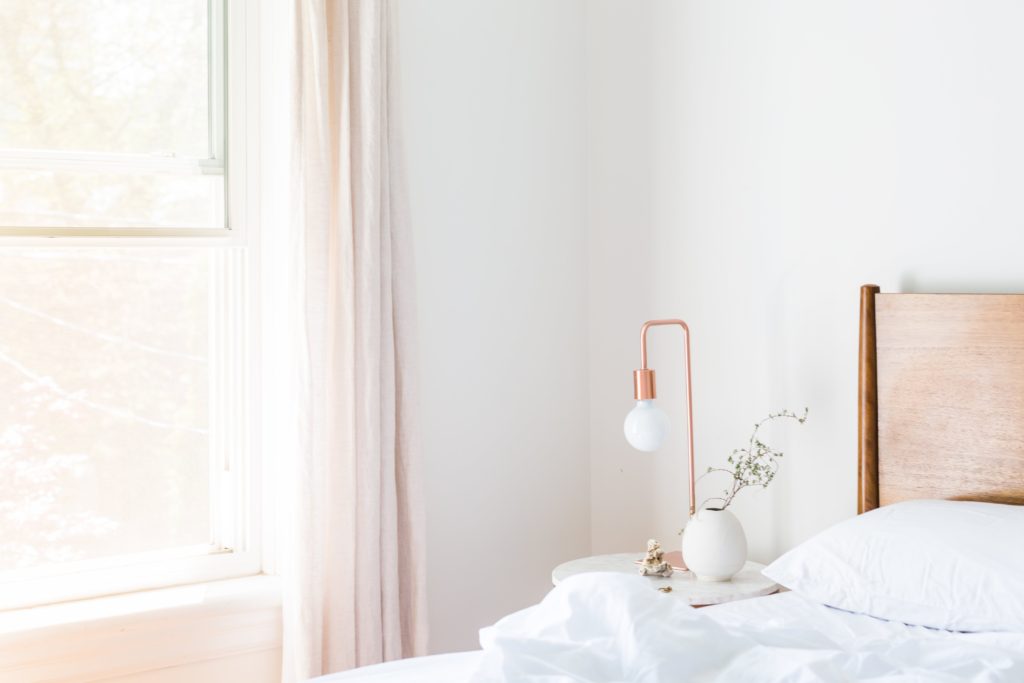
This week, my family and I shoved in the car ski boots and a sled and carefully calculated food to feed a family with three teenagers. In the 2-hour drive through the mountains, cell service dropped abruptly about twenty minutes in. Our friend’s cabin, swaddled in 3 feet of snow, has no internet (brilliant!), no reception, and is primarily heated with a potbelly stove.
The plan originally seemed dicey. My friend with cancer is declining. And after this trip, my husband leaves for two and a half weeks.
But little symptoms were also beginning to indicate a week off could be a good thing, considering I turned in my manuscript to Zondervan almost three weeks ago.
(Please remind me next time I write a book that my family and I should not get the flu, celebrate the holidays, or have anyone around us encounter the end of life.)
My first “maybe I do need a vacation” moment literally came the next morning after turning in my manuscript, while making the bed and speaking with a colleague on the phone who I don’t talk to very often. “Where are you based again? Arizona?”
“California,” I said.
People, I don’t live in California.
A Rhythm of Rest
I started thinking about my advice to you—coincidentally, a lot easier than following it myself—that we take a proportional beat after expending significant amounts of energy. It’s like my friend who trained for the half-marathon up Pikes Peak.
We must spend our energy rhythmically. Sustainably.
But at least last year, it hardly seemed like there was time to sit down, metaphorically or physically.
This probably explains why I felt disproportionately angry when I came down with the diagnosed-with-a-letter flu over the personal retreat my husband got me for my birthday. I may have thought something like, Lord, really?
Kind of like when I had young kids and read commands about the Sabbath. (Should we just put a little P.S. in there for moms of toddlers? “We know if you rested, your kids might starve or burn something down. We know if you don’t load the dishwasher, all Monday will be spent catching up. Hope it works out! Work enough overtime so you can get a nap, okay?”)
But once you start observing Sabbath, prying open space to make it work, asking for the help you need to make it happen?
You might just not ever go back.
Are Real Christians Burned Out?
I had to ask myself, Do I really think it’s God’s will for me to be constantly burned out, even for all these things I think he wants me to do? Do I really think Jesus was the most burned-out guy on the planet?
No. No I don’t.
Which tells me I probably have a discernment problem. (I’ll probably write more on that later.)
Read DEEPLY FRIED: On Dealing with BurnoutSo this week, I read books. I experimented with oil painting alongside my kids, which is to say I created one that embarrasses me, and one I kind of like, though I’ll remain in the fruit-painting stage for awhile. We bought cheap plastic sleds at a grocery store and raced down a deserted road for an hour, my kids shouting lines from Cool Runnings (“Kiss the lucky egg!” “You dead, mon?”). In the snow, we shoveled out sledding luges and snow caves. We played board games, popped corn, watched a few old movies, slept, stoked the fire. I walked.

This is Your Soul on Rest
So I decided to write down observations of what I look like rested.
Because a lot of times, I consider it pretty optional. It would be better, I tell myself, to have a cleaned-out closet or muffins for breakfast, to get ahead on work, to not have to tackle dishes or laundry in the morning.
Which brings me to my first observation.
1. Each day has enough trouble of its own. – Jesus (Matthew 6:34 )
I think I’m getting ahead on work, but so often, I’m just making space for more work.
Harvard economics professor Juliet Schor observes professional women’s leisure time has declined by as much as one-third since the early 70’s.[1] All of our getting more done through tech? It’s raised, not lowered, our expectations of efficiency and productivity.
2. I don’t always need to be relentlessly available.
Sometimes my inclination to jump up like a Pop Tart for my kids or anyone else doesn’t actually train my kids to be non-entitled, independent problem-solvers.
Read WHEN YOUR HELP MAKES THEM HELPLESS: WHY NOT TO PICK UP YOUR KIDS’ SOCKS3. When I rest, I feel less like a slave, more like a daughter.
Y’know what operates around the clock? Things like my fridge. My heater. Toilets. My washing machine after our vacation.
Machines. Not people.
In the story of the prodigal son, the elder son was gut-level, long-term enraged because he didn’t see his father giving him any ingredients for a party with his friends. He saw himself as just doing his father’s work, unappreciated, in the field.
But note the father’s (aka God’s) response: Son, all that I have is yours (Luke 15:31).
Can I really complain God isn’t giving me rest if he leads me beside quiet waters and green pastures, but I decide, “No thanks”?
4. God didn’t rest because he needed or deserved it.
‘Nuff said. Sabbath is a rhythm that declares our freedom from slavery.
Grab an infographic to help you take back your Sabbath!5. When I’m rested, I play with my kids more. I love my husband more.
I am a more fun mom, laughing as my husband and I clatter up a hill with plastic sleds, and his disheveled curls remind me of how he looked in college. Later, I ask if he’d like a backrub.
I have nowhere to go, nothing I have to do, so we try to hook to each others’ sleds with our feet, which ends, as it must, in a family pileup.
I normally can’t summon the energy for board games. Something in me doesn’t find strategy and competition replenishing. But when I’m rested, I succumb to the kids, who methodically, joyfully cream me.

6. With rest, I’m more resilient and patient.
I should have been hormonal, which let’s just say usually requires extra prayer. But rest increases my graciousness.
Rest is often the opposite of my stressed self.
7. I have more time to be with God.
Prayer can spread out on the couch of free time, where I can pray, then think, then pray some more. Turns out God is less of a faucet I can turn off and on.
My relationship there requires presence to flourish, too.
I can finally hear what he says about my identity, which allows me to turn on the volume on lies about what makes me worth something (what I do, what other people think, what I have). I didn’t touch my makeup bag, and wore my hair slung up in a messy bun. Aaah.
Bonus: My friends are prayed for more when I have the capacity to sit, think, be.
8. I am more present.
I listen better when I have nowhere to go, and the capacity to receive the person across from me.
So when my daughter tells me why she’s excited about her upcoming tournament, I’m not just nodding and making the right sounds. I can engage with what engages her.
9. I am more observant.
My non-racing brain has the capacity to appreciate the rainbow of prisms in the snow at my feet. It wonders what paint colors I would mix to make the exact blue of the sky. It connects the dots on what my kids might be going through.
10. I am more creative and visionary.
It never fails: When I get away for a few days, I know now to pack art supplies, as well as get ready to write.
Because it turns out my creativity is a finite quantity, not a limitless one. It needs oxygen, space to knock around in my brain, time outdoors to stimulate ideas, time in prayer to actually listen to the thoughts of God.
11. I have more capacity for what lies around the corner.
Last year, a Saturday sticks out in my mind: I rested, even though Sunday was coming the next day. I remember thinking it was a bit of a waste of my productivity—until the next day, my husband needed something last-minute.
In my usual M.O.—living up to my margins, and maybe snipping off a bit beyond that—I might have helped but felt anxious (“I don’t have the capacity!”) or (um, yes) resentful. Instead, even my heart was like, “Sure!”
That’s not to say “the point of rest is to be able to help others more/better”.
But you’re probably sensing a theme: When I rest—which a lot of times means saying no to something else, being unavailable somewhere else—I love better. I enjoy God more.
Sometimes when my husband or my daughter encourage me to rest, I give them a Look. The Look says something like, “Really? Do I look like I have time for that?” Or, “Sorry, that didn’t make the 10.7-foot list of things to do today.”
But sometimes that resistance looks like me doing things without love—which is pretty counterproductive.
The next time your brain tells you that you can’t rest, consider with me what could happen, who you could be, if you did.
How do you create space to slow down? Who do you become when you rest? Comment below.
Like this post? You might like
INFOGRAPHIC: Ideas to Take Back Your Sabbath
Memos to myself: On the dangers of overcommitment
The True Cost of Overcommitment
18 Dashboard-Light Questions: Am I Overcommitted?
Too Much Perfection: When You’re Feeling Guilty for Finally Feeling Good
When It’s Hard to Let God Take Care of You
[1] The Overworked American (New York: MasicBooks, 1992), p. 5.








2 Comments
Laurie - 5 years ago
Such a good reminder! Thank you for this post!
Janel Breitenstein - 5 years ago
So glad to hear you could resonate with this, too, Laurie. Hoping I don’t lose these as I start Monday morning 🙂 Thanks for the warm words!